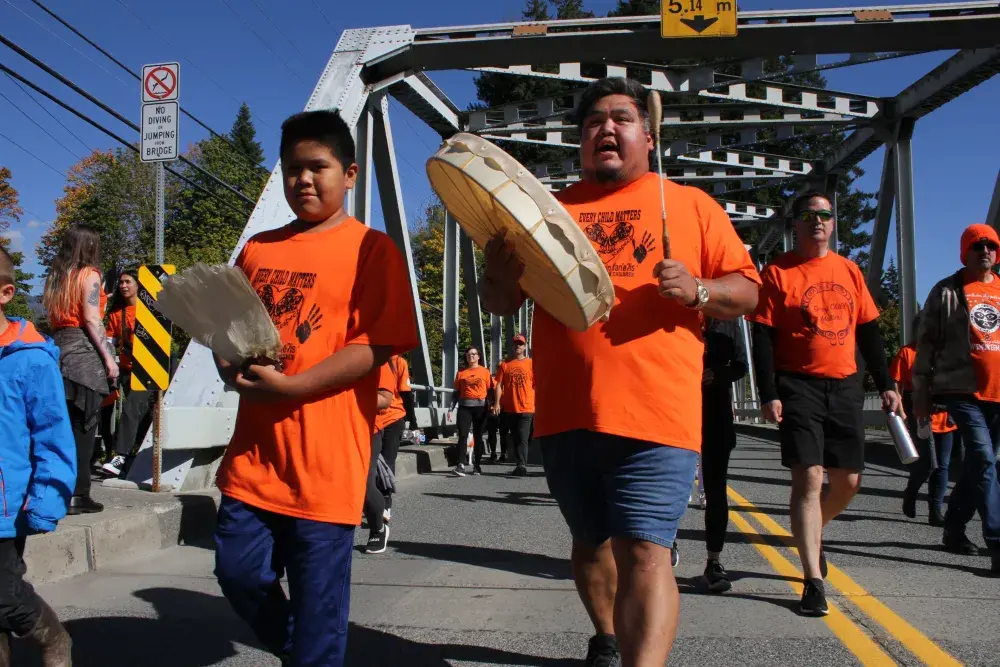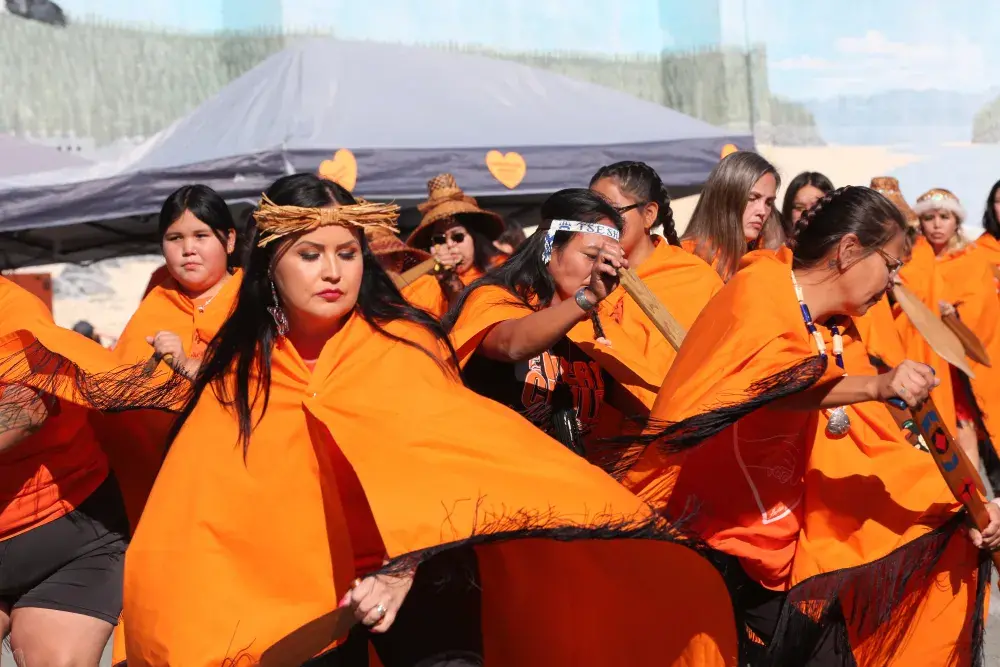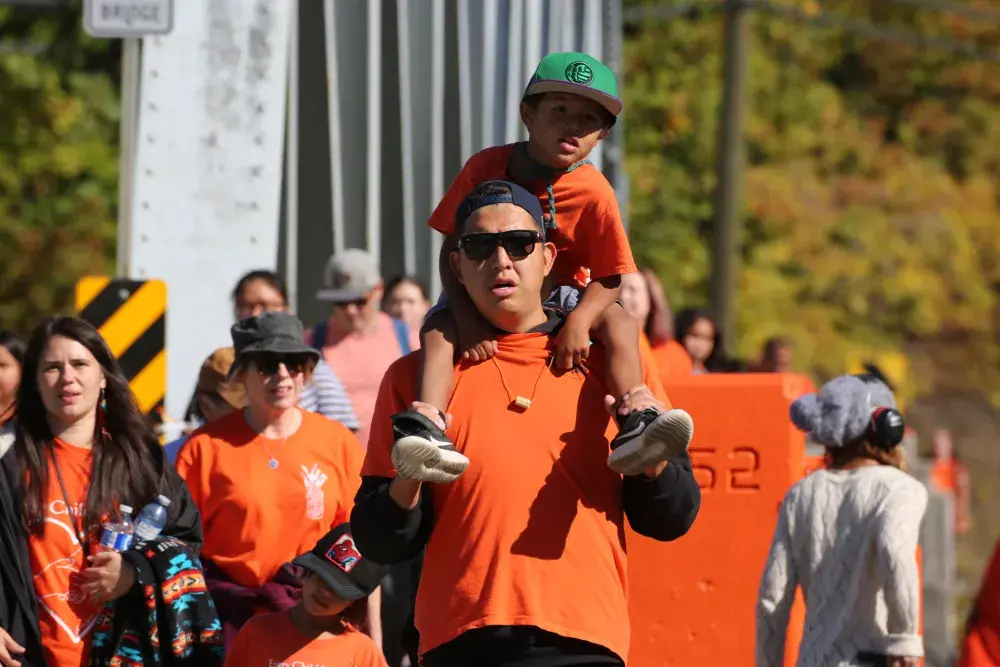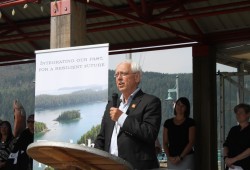The Tseshaht First Nation has received a major boost towards its economic endeavours with a $16.45 million agreement with the provincial government.
Announced by the First Nation on Sept. 17, the Incremental Economic Reconciliation Agreement entails over $16 million in provincial funding, spread out in annual payments until 2027. The funds are to support Tseshaht’s “near term” economic goals, with the intention to “establish a pathway for future generations,” according to a press release from the First Nation.
The funding agreement sets out payments to the First Nation of approximately 1,300 members by the end of March each year, beginning with $1 million that was given in 2024 shortly after the document was signed on March 21. This is to be followed by $4.15 million next year, $7.15 million in 2026 and $4.15 million by the end of March 2027. The funding is “for economic development interests and negotiations” undertaken by the First Nation, and “contingent on the province’s receipt of a report” detailing how the money is used, according to the agreement. Either party can terminate the agreement with 60 days notice.
“The province is looking for innovative and creative ways to collaboratively implement Aboriginal title and other Aboriginal rights,” while exploring “potential solutions to the problems that have led to conflict in the past,” notes the document.
A catalyst for starting negotiations was a dispute between the First Nation and BC Timber Sales, the provincial agency tasked with selling wood harvested from Crown land. In the past Tseshaht has disagreed with BC Timber’s management of cedar in the Nahmint Valley, an area of forest south of Sproat Lake, a dispute that led to the First Nation blockading logging roads in the fall of 2014. Frustration continued when the provincial agency sold timber from the Nahmint without Tseshaht’s consent.
The reconciliation agreement specifies that the funding represents a contribution “towards the settlement of Tseshaht’s Aboriginal rights and title claims within its territory,” including five timber sale licences in the Nahmint Valley.
“There was a sense of urgency to simply resolve an outstanding matter that’s been bothering Tseshaht for quite some time. We saw that as an avenue,” said Tseshaht Chief Councillor Ken Watts of what brought on the negotiations. “Trying to address that outstanding issue and tying it to our future makes sense.”
Tseshaht noted that a portion of the agreement will go towards projects that are already in development. These include plans to build a hotel in Port Alberni with the Huu-ay-aht, Hupacasath First Nation and MasterBUILT Hotels. The franchised Microtel Inn & Suites Wyndham would be the first hotel built in the small Vancouver Island city since the Barclay opened in 1980.
Another development in the works is setting up what the First Nation calls an “economic park” along Highway 4 near the Tseshaht Market. This entails clearing land to have a paved area with water, sewage and electrical connections available for light industrial and commercial spaces – and possibly also market rental units.
“When we look at all the different opportunities that are out there for Tseshaht, we envision ourselves not just being a stakeholder anymore, but true partners in the development within our territories,” said Watts. “It’s our goal to be the biggest landowner in our territory – not just culturally, or traditionally or historically.”
The elected chief sees the new funding agreement as a means of reaching economic self-sufficiency for future generations.
“We don’t want to have to rely on government funding to take care of our people,” he said. “We want to create enough wealth that we can do it ourselves - at the same time create jobs, create an economy for our community so we can look after our own and we don’t have to be bound by government policies and government funding agreements.”
“Tseshaht is working hard to identify economic projects that will positively impact their members, while also benefitting all who live in the Port Alberni area,” stated Murray Rankin, B.C.’s minister of Indigenous Relations and Reconciliation, in the press release announcing the new funding agreement.
Rankin was in Port Alberni just over a year ago for another funding agreement between the province and Tseshaht. In July 2023 the province announced over $5 million for the First Nation to acquire land in the Alberni Valley for the development of housing.
“Building homes for people and creating new economic opportunities are shared priorities for the Tseshaht First Nation and the Alberni Valley community,” noted Mid Island-Pacific Rim MLA Josie Osborne in the release.
“You’ve heard from other nations across the province and country who are at points where they’re producing enough revenue that they don’t have to rely on government funding,” reflected Watts. “That’s always been our vision way before my time. I think these are the resources that are going to help get us there.”





